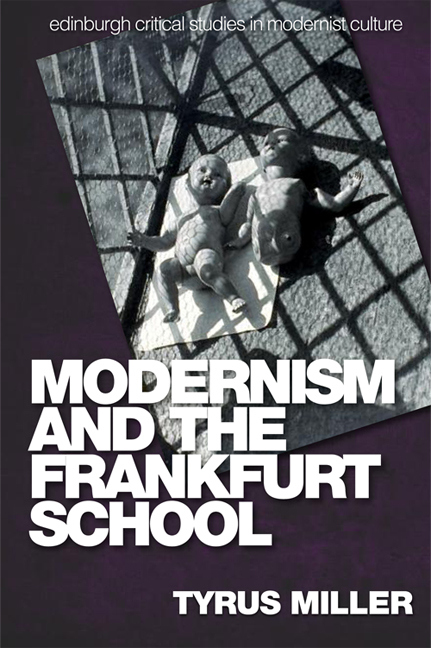4 - Herbert Marcuse
Summary
INTRODUCTION: MARCUSE AND MODERNISM
Herbert Marcuse's relation to modernism must be approached somewhat differently than that of Benjamin, who was intimately connected as translator, critic, and man of letters to several different modernist artistic currents in the Europe of his day, or that of Adorno, a trained composer and dedicated analyst of technically advanced modern music and literature. Aesthetics, it is true, was for Marcuse an important, enduring concern. As Morton Schoolman points out, “In every major work beginning with and subsequent to Eros and Civilization, Marcuse has devoted not less than an entire chapter to art and aesthetics,” and this statement was written prior to the appearance of Marcuse's final work, The Aesthetic Dimension. Commentators as varied as Timothy Lukes, Barry Katz, Charles Reitz, and Hermann Schweppenh äuser have underscored the centrality of the aesthetic for Marcuse's thought, and Douglas Kellner devoted a full volume of his six-volume edition of the Collected Papers to Marcuse's essays, lectures, and interviews on “Art and Liberation.”
Despite this importance of art and aesthetics to Marcuse, however, his writings present a different set of issues in relation to modernism than do those of either Benjamin or Adorno. First, with the exception of his early thesis-work on the German artist-novel, Marcuse does not primarily present himself as a “critic” or specialized “analyst” of art or literature, as Benjamin and Adorno both clearly did. Although both, and especially Adorno, also produced works of general theory about art and aesthetics, in many cases a reader has to derive the more general ideas from their specific analyses of examples, such as Sch önberg, Wagner, or Mahler in Adorno's case or Proust, Kafka, and Baudelaire in Benjamin's. The opposite is largely true for Marcuse: though artistic examples are regularly evinced, they tend to be made in passing, functioning illustratively for a more generic philosophical argument. As Kellner argues, Marcuse “eschewed interpretation, engaging more in formal, philosophical, and political analysis of art, than in the detailed reading of specific works,” and he “never really situated his later aesthetic studies of surrealism, Proust, or lyric poetry in their historical contexts” – which was a primary concern of, especially, Benjamin and to a significant extent Adorno as well.
- Type
- Chapter
- Information
- Modernism and the Frankfurt School , pp. 114 - 146Publisher: Edinburgh University PressPrint publication year: 2014



